April 20th is the 125th anniversary of the birth of Adolf Hitler in 1889. This is not a day to celebrate, but it is a day to contemplate. His birth would set off a course of events that would forever change the world. His life impacted, endangered, and traumatized the many people Hitler did not feel belonged in his world and those who defended them. While it’s uncomfortable to reflect on a time when the world was fighting against something so far from God’s teachings, we must remember in order to keep it from happening again. This article examines the impact of Hitler’s reign on the Mormons in Czechoslovakia, who were led by Wallace Toronto and the dangerous efforts of Wallace and his wife Martha to get the missionaries safely out of the country. We will examine the impact of the war on Mormons elsewhere in upcoming articles over the next few weeks and in June.
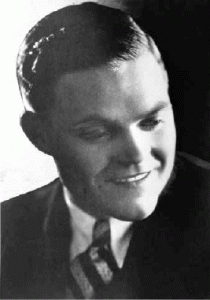 Wallace Toronto, although born in Salt Lake City, Utah, would have a powerful and long-lasting impact on Czechoslovakia’s Mormon population over the course of three Mormon missions served in the country. He would also serve as a long-distance mission leader for 25 years, when the country had none. He would serve for 32 years as a mission president, the longest anyone would serve in that position, and when he died, his wife would run the mission until it was combined with another–a fete she joked made her the only female mission president in Church history.
Wallace Toronto, although born in Salt Lake City, Utah, would have a powerful and long-lasting impact on Czechoslovakia’s Mormon population over the course of three Mormon missions served in the country. He would also serve as a long-distance mission leader for 25 years, when the country had none. He would serve for 32 years as a mission president, the longest anyone would serve in that position, and when he died, his wife would run the mission until it was combined with another–a fete she joked made her the only female mission president in Church history.
His first mission to the country was served in 1929, when he was about twenty-two years old. He was in the first group of missionaries sent into the country, which was opened to missionary work under the direction of Arthur Gaeth. Following this mission, he returned to Utah, where he graduated from college and married Martha Sharp.
In 1936, Wallace Toronto returned to the country as a mission president. A mission president oversees the missionaries serving in an area and leads the missionary work. His wife serves with him, often considered the mission mother to the many young people under their care. President Toronto’s wife Martha was only 24 years old and the mother of a one-year-old daughter. Their second child was born just five months after their arrival. Missionaries often teased Martha because their “mother” was younger than many of them.
Faith Competes With Hitler for Attention
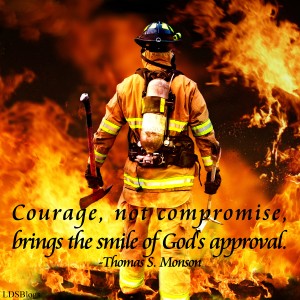 In 1937, the president of The Church of Jesus Christ of Latter-day Saints, whose members are often called Mormons, would come for a visit. Heber J. Grant was 81 years old with a stamina that was impressive. His visit generated significant publicity, which helped the work of the Church there.
In 1937, the president of The Church of Jesus Christ of Latter-day Saints, whose members are often called Mormons, would come for a visit. Heber J. Grant was 81 years old with a stamina that was impressive. His visit generated significant publicity, which helped the work of the Church there.
Unfortunately, the missionaries soon found it hard to capture the attention of the Czech people. Everyone was distracted by the growing reputation of Adolph Hitler. The present dangers seemed understandably more pressing than matters of eternity. Conversions were limited, and the missionaries were frustrated by the lack of interest in how the gospel could help the people through their political challenges. The Czech people had only achieved independence a few decades before and were desperate to keep from losing it to Hitler.
Mormon Missionaries in Danger in World War II
By 1938, Czechoslovakia was feeling the pressure of Hitler’s regime. Hitler accused the Czechs of persecuting Germans who lived in their country, a tactic he would use several times to justify persecution of his own. On 14 September 1938, the Church removed all missionaries from both Germany and Czechoslovakia as a safety precaution. However, they were allowed to return after Germany, Great Britain and France agreed to let Hitler have western Czechoslovakia in exchange for an end to aggression. (Czechoslovakia was not invited to this meeting and had no say in the matter.) J. Reuben Clark, a church leader with a diplomatic background, monitored Europe through his State Department connections and was able to communicate with them often—sometimes hourly.
Martha and the children went to Switzerland when this occurred, in order to protect the children. The Czech people were determined to save the rest of their country. Older missionaries were sent home and some were sent to Switzerland to work. When it was deemed somewhat safe, they returned.
On March 15, 1939, Hitler completely occupied Czechoslovakia, just a few days before the birth of Wallace’s and Martha’s third child. She learned of the surprise attack while still in the private hospital her doctor owned. To suddenly be controlled by a new government, one that did not permit the freedoms of the previous government, was frightening. No one was sure what they were allowed to do or say. Missionary work had to proceed cautiously.
A World-Wide Church–Mormonism in Hitler’s Reign
On Mother’s Day a Nazi officer in full uniform suddenly walked into the chapel near the end of the worship service. Everyone was terrified, convinced he was there to arrest them for worshiping. However, Wallace, who was presiding at the meeting, calmly walked to the man and spoke quietly for a moment. Then he turned the meeting over to the young soldier, who explained that he was a church member and wanted only to be allowed to worship with them when he was permitted to do so. He shared his personal testimony of the Church and of Jesus Christ. The congregation was in tears. This is what the gospel is about—people of all types worshiping together, even though their politics might put them at odds in the secular world. He was welcomed into the congregation wholeheartedly at the end of the meeting by those who hurried to introduce themselves.
Mormon Missionaries Arrested
One August, Martha arrived at the YMCA, where the church met, during the week to lead a meeting among the young people. She was surprised to find the doors locked. The missionaries always arrived early to set up the meeting for her. They never arrived, and she reported this unusual occurrence to her husband when she returned home. The next morning a Gestapo agent arrived with one of the missing missionaries. He announced that the four missionaries had been arrested and that the one they had brought with them had keys they were interested in. The key was to a strongbox that held cash to be used to help missionaries flee the country in an emergency. The missionary was able to distract the agent while Wallace quietly removed a portion of the money before allowing the agent to steal the rest of it. It was dangerous to be without escape funds under the current situation.
Eventually they learned that before the laws had made it illegal to exchange American money for German money privately, one of their missionaries had done so. Even though it had not been illegal at the time, Hitler liked to make laws retroactive, so the missionary and his companion had been arrested when it was somehow learned of the transaction. The other two missionaries had arrived at the apartment to check on the missing missionaries when the Gestapo was searching the house and so they were arrested as well.
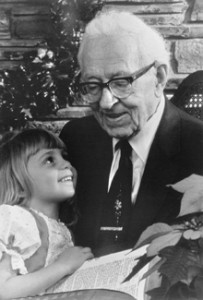 The missionaries were held as political prisoners and given only bread and water. Every week, Martha took a one-hour streetcar ride to the prison. She delivered clean clothing for the missionaries and took their soiled clothing home with her to be washed. Her husband devoted most of his time to trying to free his missionaries, leaving a few young men to handle the administrative work and the rest of the mission to run alone. A Mormon apostle, Joseph Fielding Smith, was due to arrive for a missionary conference, and one of the missionaries was put in charge of preparing for the visit and the large conference. When Elder Smith arrived, he helped Wallace Toronto make plans for an evacuation if it became necessary.
The missionaries were held as political prisoners and given only bread and water. Every week, Martha took a one-hour streetcar ride to the prison. She delivered clean clothing for the missionaries and took their soiled clothing home with her to be washed. Her husband devoted most of his time to trying to free his missionaries, leaving a few young men to handle the administrative work and the rest of the mission to run alone. A Mormon apostle, Joseph Fielding Smith, was due to arrive for a missionary conference, and one of the missionaries was put in charge of preparing for the visit and the large conference. When Elder Smith arrived, he helped Wallace Toronto make plans for an evacuation if it became necessary.
The Nazis wanted ten thousand dollars for the release of the missionaries—a great deal of money at that time. Wallace could not give them so much, so he continued to try to obtain their freedom in other ways. One day he woke up with a strong impression to go to the Gestapo office. He went, and being American, was mistaken by the guard for someone from the American Embassy who was due that day. This got him into the officer he needed to see on a day no one was being allowed in. This officer could approve or veto any request.
The officer said that the Americans were rich and could pay what was asked. Wallace told him the missionaries each received fifty to seventy-five dollars in American money each month from home to cover their expenses. This was a great deal of money in wartime Czechoslovakia. There were 150 missionaries in Germany. He suggested the officer calculate just how much money these men were bringing into the country—and spending there. The man did. Wallace Toronto threatened to remove all the missionaries and their money. The officer decided he was unwilling to lose that boost to the economy and approved their release for just 1000 dollars.
Mormon Missionaries Evacuated from Czechoslovakia
The next day, August 24,1939, both the American Embassy and the Mormon prophet ordered the evacuation of all American Mormon missionaries. Wallace sent most of the missionaries to Denmark immediately and arranged for his wife and children to depart for Denmark the following day. He had to stay behind to retrieve the passports of the missionaries who had been arrested and to make certain all missionaries got out safely. However, they first faced a tremendous challenge. The Nazis were only allowing people who left the country to take with them the equivalent of 1 dollar and sixty cents. They couldn’t leave on so little money. Wallace did not want the missionaries to break any laws and risk arrest again, but they had to get the emergency money out of the country in order to get the missionaries to Denmark, where they would be safe. Each missionary had about twenty dollars they had been instructed to save for evacuation. Wallace collected all these funds and gave them to his wife, hoping they wouldn’t bother to ask a mother of young children how much money she had. A Jewish friend told her to put the money, nearly 3000 dollars when combined with the emergency funds the Church had provided, into her coat pocket. He said they would search her purse, but would probably not check her pocket. This man also paid the conductor to allow her and the children to sleep without interruption at the border check that would occur during the night.
She and her children arrived in Berlin to find the place in chaos due the many Americans trying to escape. A church leader who had been assigned to meet her helped her find space on the next train and in the great confusion, no one asked what she was taking out of the country. They asked only for her passport.
When she arrived in Copenhagen, she was asked to show her money, but this time it was all women arriving without husbands who were being asked to prove they had enough money to care for their own needs. Without those funds she would not have been allowed to enter.
Back at home, her husband was struggling with the re-arrest of one of his missionaries. The missionary was captured just before they left. He had the same name as a spy, so eventually, Wallace Toronto was able to prove it was nothing more than a case of mistaken identity. They were able to leave the country on the very last transport to get out before the Nazis took full control of transportation and would block many from leaving.
His wife, in the meantime, was very anxious. Communications had already been cut off, and she knew transportation would shortly end as well. She, the apostle Joseph F. Smith, and other church members gathered in a prayer circle. Afterwards, Elder Smith put an arm around her shoulder and prophesied that the war would not begin until her husband and his missionaries arrived in Denmark. They arrived that evening and the war began that same day, shortly after their arrival.
Next week, we will explore what happened to this family when they returned to Czechoslovakia, forced to live under Nazi rule and even to have church lesson plans approved by the government.
Sources:
Kahlile Mehr, Czech Saints: A Brighter Day, Ensign, August 1994
The Wallace Toronto Foundation
Chapter Forty: The Saints during World War II, Church History in The Fulness Of Times Student Manual, (2003), 522–534
A CHERRY TREE BEHIND THE IRON CURTAIN: AUTOBIOGRAPHY by Martha Toronto Anderson
Do you love to tell stories? LDSBlogs is looking for a believing, practicing Mormon volunteer to tell true stories like this one about real Mormons, past and present. Click the picture below and apply to blog “Stories from Mormonism” or to explore one of our other open topics.
About Terrie Lynn Bittner
The late Terrie Lynn Bittner—beloved wife, mother, grandmother, and friend—was the author of two homeschooling books and numerous articles, including several that appeared in Latter-day Saint magazines. She became a member of the Church at the age of 17 and began sharing her faith online in 1992.

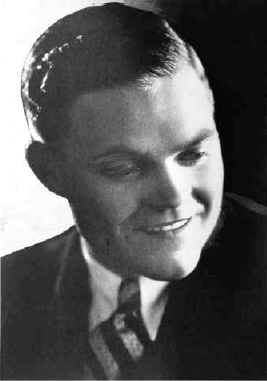
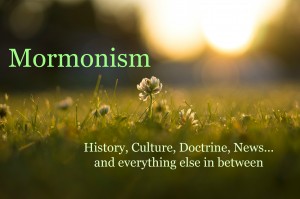



now I want to read her autobiography! what a frightening time and a fascinating history.
Thank you for attaching the link for Martha’s story.
We are preparing to teach this topic in our Adult Institute Class, so the additional information on the Torontos is much appreciated. How do I read the next part?
Unfortunately the author has recently passed away. I’m afraid there won’t be another follow-up article. I wish there were. Thank you for your interest.